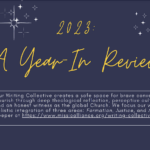Big Idea: Preaching = Announcing the new world has come in Jesus Christ.
In an image driven culture, why do we still have sermons? What good can a Sunday sermon have when everyone is bombarded by other messages all week long? What is preaching for anyway? [soundcloud url=”https://api.soundcloud.com/tracks/224278507″ params=”color=ff5500&auto_play=false&hide_related=false&show_comments=true&show_user=true&show_reposts=false” width=”100%” height=”166″ iframe=”true” /]
David Fitch and Geoff Holsclaw talk about preaching as proclamation (different than teaching) and how the “imagination” is essential for it transforming people toward Christ-likeness.
 Don’t miss the MISSIONAL LEARNING COMMONS on “The Mission of Preaching”, Nov. 6-7, Chicago, IL.
Don’t miss the MISSIONAL LEARNING COMMONS on “The Mission of Preaching”, Nov. 6-7, Chicago, IL.
INFO and REGISTERATION
Topics and Presenter will be:
PREACHING: Proclaiming or Teaching, or…? ~ David Fitch
POUR OVER SERMONS: Brewing in the Spirit ~ Tara Beth Leach
RESURRECTION IMAGINATION: Good News in the Religious Marketplace ~ Matt Tebbe
PREACHING “THROUGH” AND “TO” VULNERABILITY ~ Mandy Smith









Missio Alliance Comment Policy
The Missio Alliance Writing Collectives exist as a ministry of writing to resource theological practitioners for mission. From our Leading Voices to our regular Writing Team and those invited to publish with us as Community Voices, we are creating a space for thoughtful engagement of critical issues and questions facing the North American Church in God’s mission. This sort of thoughtful engagement is something that we seek to engender not only in our publishing, but in conversations that unfold as a result in the comment section of our articles.
Unfortunately, because of the relational distance introduced by online communication, “thoughtful engagement” and “comment sections” seldom go hand in hand. At the same time, censorship of comments by those who disagree with points made by authors, whose anger or limited perspective taints their words, or who simply feel the need to express their own opinion on a topic without any meaningful engagement with the article or comment in question can mask an important window into the true state of Christian discourse. As such, Missio Alliance sets forth the following suggestions for those who wish to engage in conversation around our writing:
1. Seek to understand the author’s intent.
If you disagree with something the an author said, consider framing your response as, “I hear you as saying _________. Am I understanding you correctly? If so, here’s why I disagree. _____________.
2. Seek to make your own voice heard.
We deeply desire and value the voice and perspective of our readers. However you may react to an article we publish or a fellow commenter, we encourage you to set forth that reaction is the most constructive way possible. Use your voice and perspective to move conversation forward rather than shut it down.
3. Share your story.
One of our favorite tenants is that “an enemy is someone whose story we haven’t heard.” Very often disagreements and rants are the result of people talking past rather than to one another. Everyone’s perspective is intimately bound up with their own stories – their contexts and experiences. We encourage you to couch your comments in whatever aspect of your own story might help others understand where you are coming from.
In view of those suggestions for shaping conversation on our site and in an effort to curate a hospitable space of open conversation, Missio Alliance may delete comments and/or ban users who show no regard for constructive engagement, especially those whose comments are easily construed as trolling, threatening, or abusive.